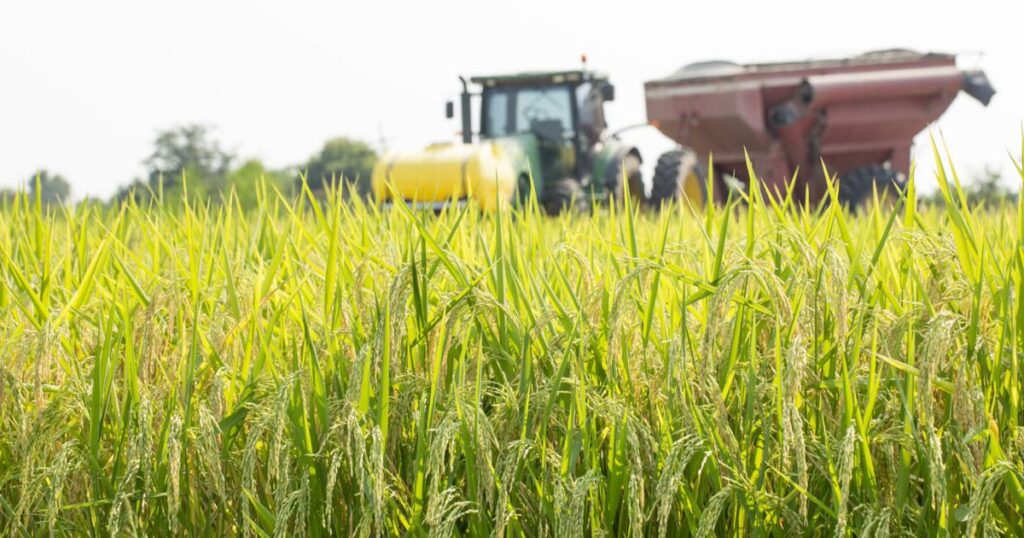Impact of USAID Funding Freeze Raises Concerns for Louisiana Rice Farmers
Recent moves to drastically reduce the U.S. Agency of International Development’s (USAID) workforce have sent ripples through the agricultural sector, particularly affecting Louisiana’s rice farmers. The proposed cuts, championed by former President Donald Trump and Elon Musk, aim to streamline foreign assistance but have sparked fears over the future of food aid programs.
USAID, a cornerstone in providing global food aid since 1968, has been largely under the radar within agricultural discussions, according to Michael Fruge, owner of Parish Rice in Eunice. “They talk about Mexico because it changes,” Fruge explained. “They talk about India because they put export bans on long grain rice. But food aid has just been there. It just hasn’t been talked about because it’s just there.”
Earlier this month, the Trump administration initiated a sweeping freeze on foreign assistance, leading to the layoff of thousands of USAID employees and the suspension of various international programs. However, a federal judge intervened last Friday, issuing a restraining order that temporarily halts the plan to reduce USAID’s workforce from 10,000 to fewer than 300 employees.
Despite the temporary block on workforce reductions, the freeze on USAID’s international aid programs remains, posing potential challenges for U.S. farmers involved in these initiatives. The agency’s programs provide billions of dollars to U.S. farms, including significant contributions to Louisiana’s rice industry.
Louisiana rice plays a pivotal role in programs like Food for Peace and McGovern-Dole International Food for Education and Child Nutrition. Rice from Louisiana is distributed globally, reaching countries such as Haiti, Iraq, and Ukraine through ports in Houston and New Orleans.
Michael Klein of the USA Rice Federation highlighted the significance of food aid in rice exports. “Food aid is one of the top 10 purchasers of rice in the nation,” he stated. In 2024, USAID acquired over $126 million worth of U.S.-produced rice, chosen for its high caloric density and long shelf life. Approximately 75% of Louisiana’s rice farming acreage is concentrated in Acadia, Jeff Davis, Vermilion, Evangeline, and St. Landry parishes, making the state’s rice industry a major player in national exports.
“The reality is we just don’t even know the full extent of what is happening,” Klein expressed. “It’s concerning, but we just don’t know how it’s going to impact the industry as a whole or Louisiana specifically.”
Significant USAID funding has supported large rice mills in Louisiana, including Supreme Rice in Crowley and Farmers Rice Milling Company in Lake Charles. However, David Warrington, CFO of Powell Group (owner of Farmers), clarified that his company does not hold any contracts with USAID. Supreme Rice CEO Bobby Hanks did not respond to inquiries, but both CEOs have previously defended food aid programs. Hanks notably quoted former Secretary of Defense James Mattis, emphasizing the importance of funding goodwill programs with the remark, “if goodwill programs like these are not fully funded, ‘then I need to buy more ammunition,'” as stated in a USA Rice press release.
The Louisiana Farm Bureau Federation opted not to comment on the developments. State Representative Troy Romero, a Republican from Jennings and chair of the agricultural committee, is actively working to preserve USAID benefits for Louisiana rice farmers. While acknowledging uncertainties, Romero remains optimistic that essential food aid programs will continue to receive support. “When (the Trump administration) looked into USAID, they found that numerous dollars were going to some crazy things that conservatives may have a problem with,” Romero said. “They’re going to reinstate the stuff that is really important. I cannot imagine that program — as good as it is — would be one of the ones that they would cut out.”
Experts like Fruge warn that any disruptions to USAID’s current operations could lead to market instabilities, including overstock and falling prices as mills seek alternative international buyers. Despite recognizing potential misallocation of funds within the agency, there is acknowledgment of the necessity for reform. Some rice farmers interviewed by the Acadiana Advocate support the administration’s intentions to eliminate wasteful spending and advocate for a renewed focus on agricultural policies under a new Farm Bill.
“If Elon and President Trump are going to fix wasteful spending, how else do you go about it?” Fruge questioned. “Are they doing it the right way? I don’t know. But I would like to think they’re doing it the best way they know how.”
